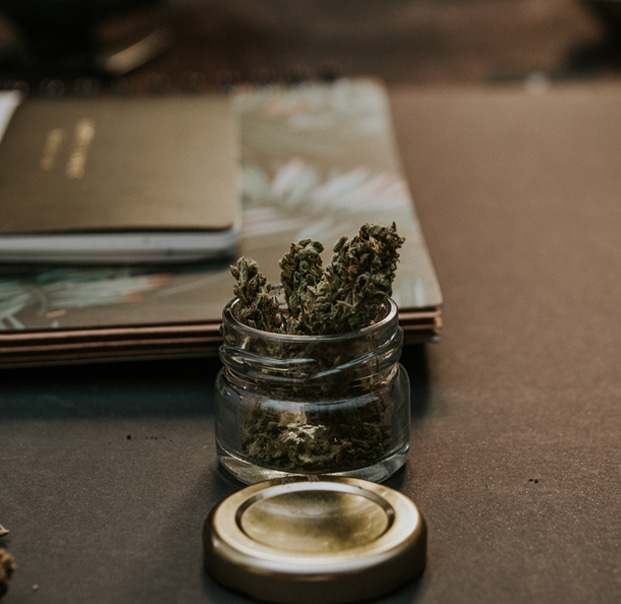Background
Missouri’s cannabis legislation has evolved from strict prohibition to a more regulated and inclusive approach, reflecting broader national trends. The journey began with stringent laws against cannabis use, mirroring early 20th-century federal restrictions. A pivotal moment came in 2014 when Missouri recognized the medicinal value of cannabis, allowing the use of CBD oil for intractable epilepsy. This step towards medical acceptance laid the groundwork for significant change in 2018, when Missouri voters passed Amendment 2, legalizing medical marijuana and establishing a regulated industry. This amendment marked a shift in public opinion and regulatory approaches, leading to the development of a comprehensive medical cannabis program.
Further refinement of Missouri’s cannabis laws included the introduction of microbusiness licenses, aimed at fostering economic opportunity and inclusivity within the legal cannabis industry. These licenses are designed to support small-scale operations and ensure participation from marginalized and under-represented communities. Missouri’s legislative evolution continues, with discussions on expanding cannabis laws, including potential recreational use. The state’s legislative journey from prohibition to regulation underscores a nuanced understanding of cannabis’s benefits, economic opportunities, and changing societal attitudes.
For the latest information and detailed insights into Missouri’s cannabis laws and regulations, the Missouri Department of Health and Senior Services (DHSS) website is a valuable resource.
Missouri has made significant strides in regulating cannabis for medical and adult use. The state has established a framework for licensing various types of cannabis-related operations, from cultivation and manufacturing to retail and microbusinesses.
The licensing process can be complex, especially for those aiming for a cannabis dispensary license or a microbusiness license. For existing medical dispensaries, the transition to also cater to adult-use cannabis sales presents both opportunities and challenges.
Types of Cannabis Licenses in Missouri
Cultivation Licenses
Permits for growing cannabis, with various tiers based on facility size and growing conditions.
Manufacturing Licenses
Allows for processing cannabis into various products, including extracts and edibles.
Retail Licenses
Enables the operation of dispensaries and delivery services for medical and/or recreational use.
Distribution Licenses
Required for transporting cannabis products between licensed facilities.
Cultivation Licenses
Medical and adult-use grower licenses available. Limited number and merit-based applications.
Back to the TopManufacturing Licenses
Infused-product manufacturers licensed separately. Includes extraction and packaging.
Back to the TopRetail Licenses
Limited number of dispensaries. Must meet equity and geographic distribution goals.
Back to the TopDistribution Licenses
Transportation license required. Compliance with manifest tracking.
Back to the TopHow to Obtain a Cannabis License in Missouri
Application and Fees
The process for obtaining a cannabis license in Missouri involves meeting eligibility criteria, completing the necessary application forms, and paying associated fees. Applicants must provide detailed business plans, security measures, and compliance strategies. The Missouri Department of Health and Senior Services (DHSS) oversees the licensing process, offering guidance and resources for applicants.
Eligibility and Requirements
Eligibility criteria include Missouri residency and clean criminal records among the owners and principal officers. Microbusiness applicants must meet specific eligibility criteria set forth in Article XIV, Section 2, of the Missouri Constitution.
Selection Process
Licenses are awarded based on a scoring system that evaluates the applicant’s business plan, security measures, and potential for positive community impact. Microbusiness licenses are allocated through a lottery drawing.
Payment and Fees
Note: Fee structures are subject to change. Consult the official Missouri cannabis regulatory website for current fee schedules.
Application Fees
The application fee covers the initial costs associated with processing and reviewing cannabis business license submissions in Missouri. These fees vary depending on the type of license and the size of the proposed operation. It’s essential to ensure all application materials are complete and accurate to avoid delays or additional costs.
License Fees
License fees are required to maintain compliance and secure operating privileges for cannabis businesses in Missouri. These fees are determined based on the license type, such as retail, cultivation, or distribution, and are typically due annually. Staying current with license payments is crucial to avoid penalties or disruptions in business operations.
Remaining Compliant with Missouri Regulations
Compliance is critical in the cannabis industry. Licensees must adhere to state regulations regarding product safety, tracking, and reporting to maintain their licenses. This includes implementing robust security measures and a seed-to-sale tracking system.
Risk and Compliance Factors From AlphaRoot
The cannabis industry, while burgeoning with opportunities, is not without its complexities and inherent risks. Understanding and mitigating these risks is crucial for long-term success. AlphaRoot, a prominent insurance and risk management firm specializing conduct business in the cannabis sector, sheds light on the key risk and compliance factors
1. Regulatory and Legal Risks
Labyrinthine Regulations The cannabis industry is highly regulated, and compliance with state and local laws is paramount for cannabis establishments. Navigating the intricate web of regulations, which can vary significantly from one jurisdiction to another, poses a substantial challenge for cannabis establishments. Failure to comply can result in fines, license revocation, or legal consequences.
Federal Ambiguity Cannabis remains illegal at the federal level in the United States, despite state-level legalization of recreational marijuana. This dichotomy creates uncertainties and exposes businesses that sell recreational marijuana here to potential federal enforcement actions.
2. Financial Risks
Cash-Intensive Operations Due to federal banking restrictions, many cannabis businesses operate primarily in cash. This not only presents security risks but also complicates financial management and taxation.
Taxation Challenges Cannabis businesses face unique tax challenges, including limitations on deductions and potential audits. Understanding and complying with tax regulations is essential to avoid financial penalties.
3. Security Risks
Theft and Robbery Cannabis businesses are susceptible to theft and robbery due to the high value of their products. Implementing robust security measures at a marijuana cultivation facility, including surveillance systems and secure storage, is vital to mitigate these risks.
Cybersecurity As with any industry, cannabis businesses are vulnerable to cyberattacks. Protecting sensitive customer data and business information is critical.
4. Product Liability and Quality Control
Product Liability Claims Ensuring the safety and quality of cannabis products is crucial to prevent product liability claims. Contaminated or mislabeled products can lead to legal and financial repercussions.
Testing and Quality Assurance Collaborating with reputable independent testing laboratory and facilities, as required by regulations, is essential to verify the safety and potency of cannabis products. Consistent quality control is essential to maintain consumer trust.
5. Market Competition and Volatility
Saturated Markets in regions with a high concentration of cannabis businesses, competition can be fierce. Navigating market saturation requires effective differentiation and marketing strategies.
Price Volatility The price of cannabis products can fluctuate significantly, impacting profitability. Businesses must adapt to market dynamics and price changes.
6. Environmental and Sustainability Concerns
Resource Intensity Cannabis cultivation and processing can be resource-intensive, including water and energy consumption. Businesses need to address sustainability concerns and adhere to environmental regulations.
Waste Management Proper waste disposal and recycling practices are essential to minimize environmental impact and meet regulatory requirements.
7. Talent and Workforce Challenges
Talent Shortages the cannabis industry often faces challenges in recruiting and retaining qualified personnel due to its specialized nature. Employee turnover can disrupt operations.
Training and Compliance Businesses must invest to ensure employees are well-informed about compliance and safety protocols.
Cannabis License in Missouri FAQ
Visit the Missouri DHSS website for application forms, eligibility criteria, and detailed instructions on the application process.
Missouri offers licenses for cultivation, manufacturing, distribution, testing, retail, and microbusinesses.
Fees vary by license type. For example, a dispensary license requires a $6,000 application fee and a $10,000 annual fee.
The selection process involves scoring applicants based on various criteria, including business plans and security measures. Microbusiness licenses are awarded through a lottery system.
About the Author

AlphaRoot Team
The AlphaRoot marketing team are seasoned experts with deep knowledge of the cannabis industry. Our informative articles help cannabis businesses thrive in a competitive landscape. From compliance to insurance tips, we’re dedicated to providing advice tailored to your needs.





